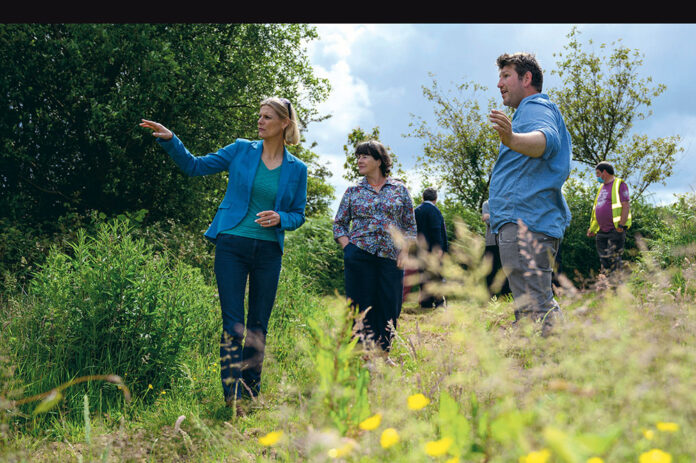MORE Irish people are interested in producing home-grown fruit and vegetables, according to the new manager of Irish Seed Savers Association (ISSA), Elaine Bradley.
Four weeks ago, Ms Bradley was appointed the new manager of ISSA and learned via a Guaranteed Irish webinar, that Bord Bia believes the renewed interest in producing home-grown food isn’t a flash in the pan.
Earlier this year, she recalled seeds produced by ISSA sold out very quickly. She explained the big difference with seeds produced by ISSA is consumers can use them again and again.
“Our seed has adapted over the millennia to the environment and climatic conditions of the country. One of the positive things of the lockdown was it gave us time to pause and take stock of our lives and what we want.
“A lot of people have started growing food in their gardens, spending more time outdoors and researching where food is coming from.
“People are concerned about climate change, the ethics of food production, sustainability, biodiversity and animal welfare.
Commenting on the establishment of ISSA 30 years ago, she described Tommy and Ita Hayes as visionaries in understanding the future biodiversity needs and the importance of open pollinated seeds.
“Tommy and Anita Hayes knew these things 30 years ago when it wasn’t in the mainstream.
“Biodiversity and food sovereignty is now central. I would like to see the excellent work that is being done and the expertise that is built up taken to another level on to a national stage because I believe we have a lot to offer.
“ISSA can play a central role in climate change. So many of the seeds that are sold at the moment that are F1 are reliant on chemicals and are stitched into the agro chemical industry.
“The use of agro chemicals is destroying the wildlife we so badly need.
“Food isn’t grown outside the system of pollinators. We understand how agriculture and growing is part of a bigger system.”
The former chief executive of Volunteering Ireland previously worked with human rights organisations in the Middle East, which included an 18-month stint in Palestine.
She said the consumer is becoming increasingly aware of where food is coming from whether it is ethically sourced, is sustainable and is doing minimal harm to the planet.
She said Minister of State Pippa Hackett had left ISSA with a much better understanding of the contribution it is making to biodiversity as well as the value of their native seed and apple collection. She added ISSA would like to work with the Department of Agriculture to help them get a different perspective on their food production.
Well known musician, Tommy Hayes recalled his wife, Anita, who is from the United States of America, had completed a course on organic agriculture in Washington, which included a module on the loss of biodiversity with seeds and the seeds population.
When the couple moved to a house with three acres in Carlow in 1989, Anita realised there was no seed being saved and a lot of seeds had disappeared, and this prompted the start of an organisation to save seeds.
They came to East Clare, bought a field and started seed making in their kitchen. The day before the current farm was put up for auction a number of people supporting their enterprise gave them money to buy most of the landholding and then purchased more at a later stage.
“It is an amazing place, it has grown and grown and is a real testament to all the people who worked here. People have worked really hard for not much wages because they believed in what is happening here.
“I am proud of what has been achieved. About ten years ago, things were looking very dicey, but through wage cuts and good management, it is in a much healthier place now.
“Agricultural biodiversity isn’t very well understood. We have lost about 90% of our seed over the last 60 years through short sightedness on behalf of governments and Europe.”
by Dan Danaher

